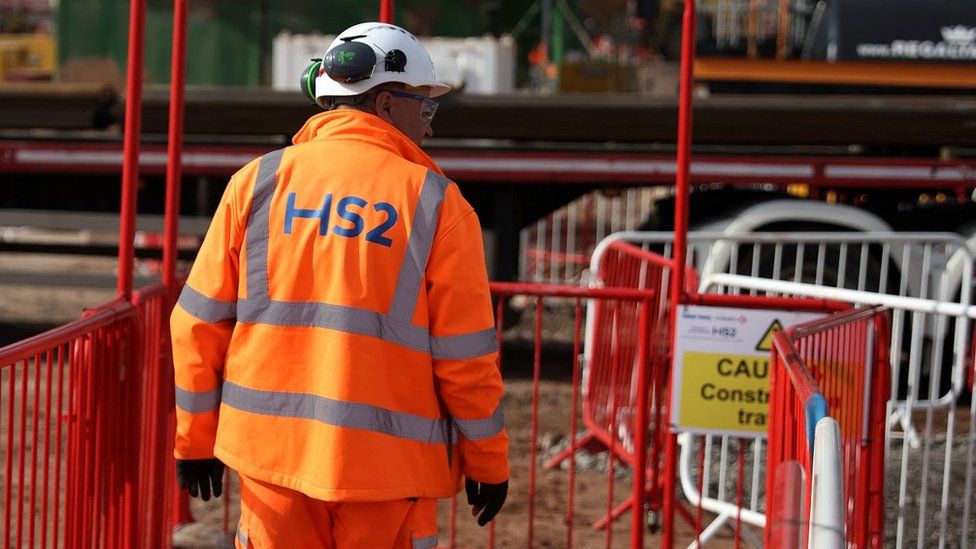ARTICLE AD BOX
 Image source, Reuters
Image source, Reuters
People who lost their homes and firms along the scrapped northern route of the HS2 rail link will not get any new compensation, Transport Secretary Mark Harper has told the BBC.
Those people have already been paid for their properties, he said.
But some farmers affected by the HS2 route say they should be compensated.
John Barnes, who had his family farm compulsorily purchased, said the government "have put a lot of people through a lot of pain and anguish".
The government has spent nearly £423m on buying hundreds of properties and land for the now-scrapped Birmingham to Manchester leg of the route.
Mr Harper told BBC Breakfast that having properties compulsorily purchased was "difficult" for the people affected, and that they "obviously won't be happy" about the decision to scrap the route.
However, he said: "Those properties were purchased at market value, so they will have been effectively compensated for that. The legal position won't have changed for those people."
But farmers along the route have said the uncertainty about their homes and businesses has been stressful and expensive.
Mr Barnes' farm, which also contained a wedding venue and farm shop, was in Staffordshire. He now farms in Gloucestershire.
"We've had 11 years of a pretty difficult time," he told the BBC's Farming Today programme, adding that he felt "cheated" by the decision.
It is not clear what will happen to his old farm, which is in a "pretty dire" state, he said.
The wedding barn and other buildings have been demolished already, and the old farm house is boarded up.
"There's just a scar straight across the middle of the farm. They've done a lot of groundwork which couldn't be reinstated as farmland," he said.
"If we had the choice, we'd move back in a heartbeat, if the railway wasn't there," he added. "It was home. They took our home away from us."
He said he would be interested in buying back what was left, but "it's not a farm any more".

 1 year ago
25
1 year ago
25








 English (US) ·
English (US) ·